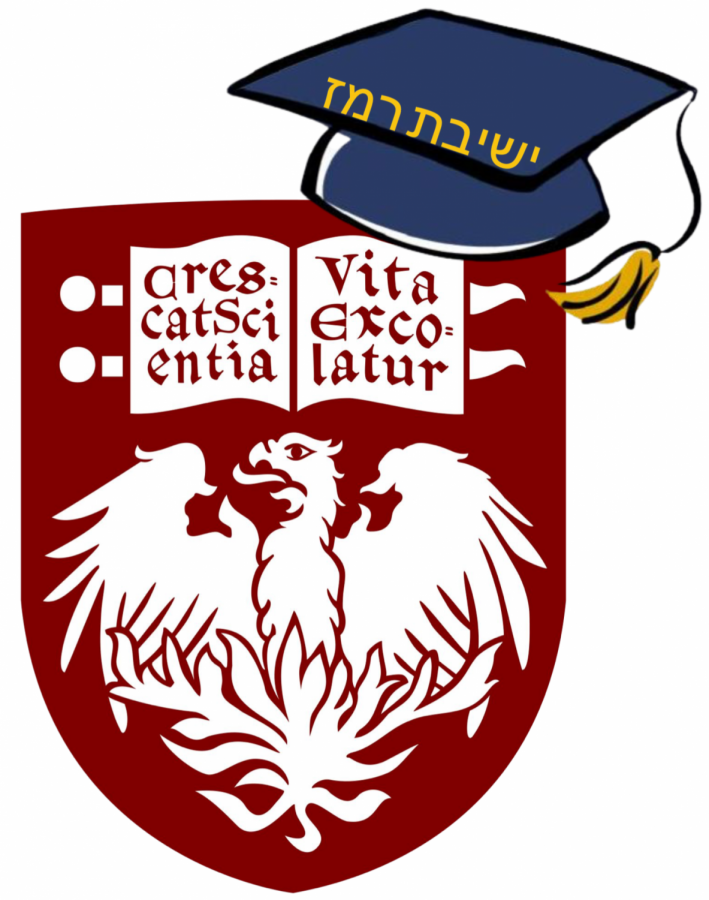Alma Matters – From Ramaz to UChicago: Interview with Adie Present ’16
CS: Why did you choose UChicago?
AP: I chose to attend UChicago because I was really attracted to the liberal arts environment where I would be challenged to pursue courses in my areas of interest and comfort zone while also being exposed to its reputable core curriculum. I wanted to leave New York and experience a university that exposed me to a new city, while also giving me the fabled “campus life” experience. Lastly, the size of the Jewish community seemed ideal to fulfill my desire to be a part of a Jewish community, while also meeting new people and making new friends.
CS: What is your major and why?
AP: I am majoring in economics and minoring in computer science. I initially chose to study econ because I did not want to pass up the opportunity to study econ at a university known for their economics department. In reality, though, I have always had a proclivity for quantitative courses and was drawn to the more tangible practices of economics as opposed to the theoretical. I challenged myself to pursue the CS degree to challenge myself with new practical skills that would allow me to pursue a career in my specific area of interest.
CS: What is the Jewish Community like at UChicago?
AP: The Jewish community at UChicago is growing at a very fast pace and I have had the opportunity to watch it develop over these past four years. As the community has grown, we still managed to stay a very close-knit community; everyone knows one another and we often have full community events. While the community has always been particularly close, everyone engages with the larger campus community and other friendships throughout the week as well.
CS: Could you tell us a little bit about the different Jewish programs on campus?
AP: While UChicago has many Jewish programs rooted in its deep history, there are also new programs and institutions popping up each year. Hillel has always been a home for all Jews on campus, regardless of affiliation. They provide meals on Shabbat, a place to hang out, and countless social and academic programming throughout the week. We are also lucky to have a JLIC couple on campus, a program through the Orthodox Union (OU) that sends young couples to college campuses to enliven the Jewish community. The couple plans traditional religious programming, guidance, and Shabbat meals. The Chabad couple also services students of all affiliations with Shabbat meals and a weekday café. We are very lucky to have so many institutions and programs that work hand in hand to service the larger Jewish community.
CS: Do you find the Jewish community is separated by religious affiliation?
AP: One of my favorite aspects about the Jewish community is the integration among religious affiliations. In a non-Covid year, the Hillel building is very welcoming and I love seeing the unity on Friday nights as everyone eats their Shabbat meals together. As the orthodox community is growing, I have been really impressed by the attention that is made by Hillel leaders to ensure that this dynamic does not fade away.
CS: Do you live on campus? How often do you leave campus?
AP: I live in “off-campus” housing which essentially means I don’t live in campus dorms, though my apartment is still right on campus. Especially in the first few years, most students spend more of their time socializing on campus and engaging in the campus life environment. Many students also take advantage of the close proximity to downtown and go there occasionally to see and do new things.
CS: Part of the excitement of going to college is being in a new place. Do you feel like you are just in another version of New York City?
AP: Not at all! As I mentioned, New York and Chicago are very different cities and our campus is even removed from the main downtown area. Even more so, I love that I get to travel to and from school and really feel like I am leaving NY. All the while, Chicago is still only a short plane ride away.
CS: Do you think your transition to college was smoother than students coming from other schools? Why?
AP: In general, I think Ramaz students are positioned very well to transition to college smoothly because of the academic preparation. Especially after taking a gap year in Israel, I had a much easier time living away from home. While I do credit my Ramaz education by giving me the tools to adapt to college, I also think that, to some extent, our personalities define our ability to handle this change. Everyone has their own inherent time management skills and work ethic that can, of course, be improved over time.
CS: Is there anything else you would like to share about your experience at UChicago with the students of Ramaz?
AP: I have had an amazing time at UChicago. I have been lucky to meet like-minded students from around the world while simultaneously being exposed to people that are very different from myself. There are so many types of people, programs, majors and activities to get involved with that it is nearly impossible not to find a community where you belong.



